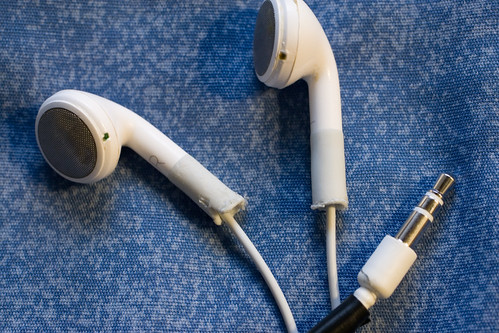Is it Obsolete? NPR Radio Stations
By EricMesa
- 3 minutes read - 606 words[caption id="" align=“aligncenter” width=“500” caption=“Thanks to podcasts, NPR maybe be obsolete”]  [/caption]
[/caption]
I am a huge listener of public radio programming, but I no longer listen to my local NPR station. Most of the time I just listen to podcasts of the shows that would otherwise be broadcast on NPR. The basic force behind this is the same as the reason why I loved my MythTV when I had cable TV. I don’t want to have to do appointment radio listening any more than I want to do appointment television. In many cases this is because the shows I enjoy listening to come on the air while I’m at work, in the gym, or sleeping. The shows I listen to are produced by NPR, Public Radio International (PRI), and American Public Media (APM). That includes Fresh Air, Talk of the Nation, On the Media, Media Matters, Wait Wait Don’t Tell Me, Away with Words and On the Money with Christ Disimio. Together with other non-radio programs and some BBC programs, these provide for all of my radio-listening needs. This started out (and a big reason I got into podcasts a few years after most techies had) because, in Baltimore, the local NPR station at 88.1 is interrupted by XM (or Sirius) FM transmitters. So I got pissed that whenever I happened to be available when a show I liked was on, every time someone with satelite radio passed by I couldn’t listen to my program. This is why I donated to the Washington DC NPR station - that one isn’t subject to interference so I’d rather pay for a station I can hear.
But I stopped donating to my local NPR station because I just bought a house and I don’t have the discretionary money to donate to as many places as I used to. And when it came around to it, I don’t even listen to NPR on the radio. I listen to podcasts. So why support this station or that station. In fact, as far as I know, some of the programs I listen to aren’t even carried on the local NPR stations. So I think the stations are, as more people switch to podcasts, becoming obsolete.
This presents a problem in the form of funding. Podcasts of real radio programs with paid hosts need money. But when I donate, I don’t want to waste my donation providing for the operations of my local NPR station. I want all of the donation to go to the programs I actually listen to. I think, going forward, that the various NPR (and PRI and APM) programs are going to have to either solicit donations individually or as a collective. Of course, this means less popular shows may fall by the wayside, but that’s capitalism. If they can’t attract enough listeners to donate, the program goes away.
One possible innovation for public “radio” funding could take a page from churches. Many churches allow the tithers to check a box dictating where the money should be spent. So you could say out of $100 that $50 goes towards the building maintenance and $50 goes towards missionary work. So perhaps we eliminate the station middle-man and basically I can donate to NPR, PRI, and APM. And when I donate I can say I want portions of my money to go to show A and portions to go to show B. This way there’s a direct corelation between who stays on the air and how popular they are.
So I say that NPR Radio stations will become obsolete, but hopefully the content continues to be produced under new funding models.